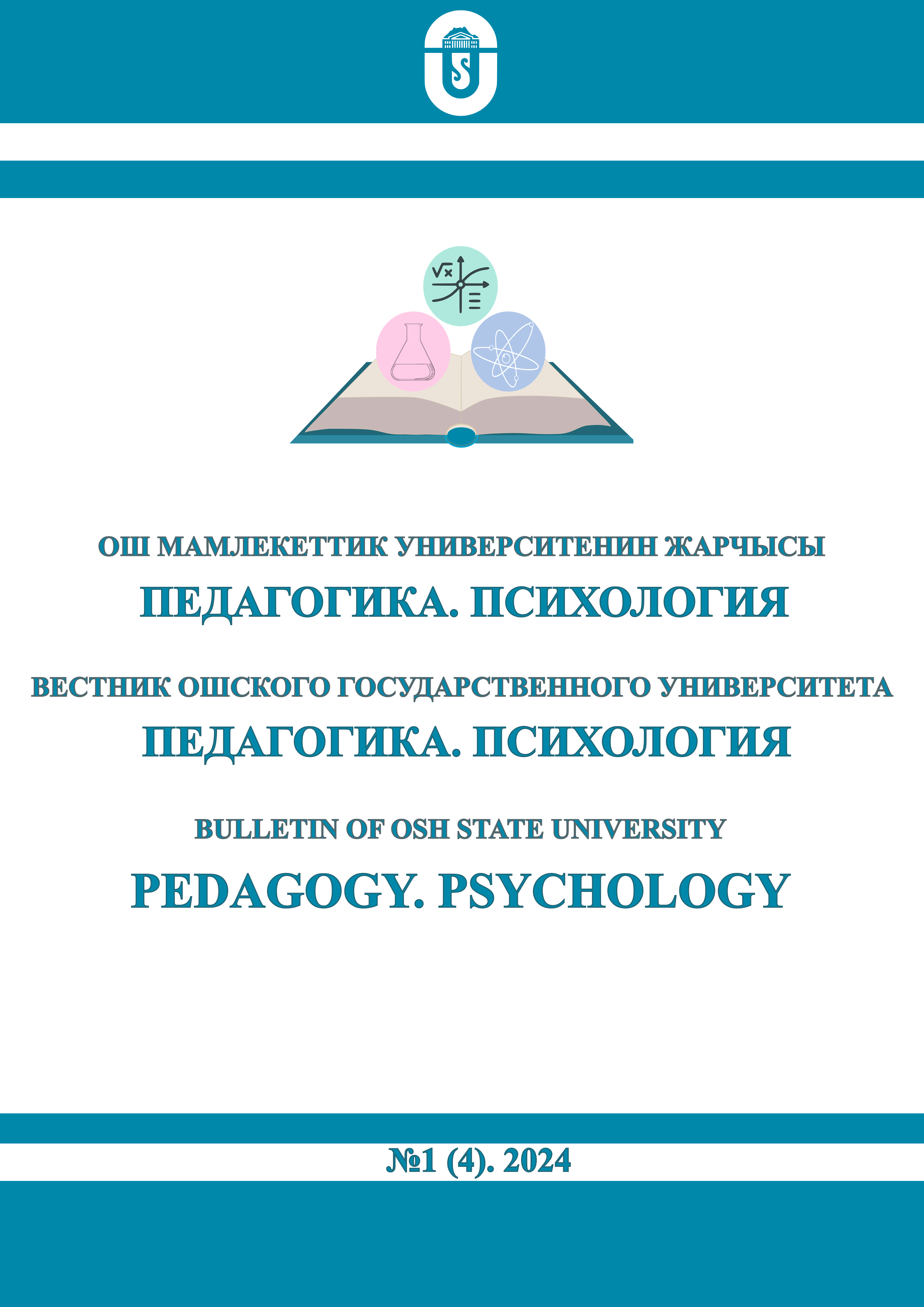FORMATION OF STUDENTS' INFORMATION COMPETENCE WITH THE HELP OF INTERACTIVE TASKS IN MATH LESSONS
DOI:
https://doi.org/10.52754/16948742_1(4)_3-2024Keywords:
interactive tasks, competence approach, modern information technologies, learning efficiency, online platforms, logical thinkingAbstract
The article discusses the methods of using interactive tasks in a math lesson. At present, the constant development of modern information technologies requires the organization of the educational process using modern technologies. The importance of modern information technologies in solving problems is very great. From this point of view, quality education efforts are being made to achieve the goals set at all levels of education, ways and means of increasing the effectiveness of teaching are being actively used. Currently, there are many Internet applications that are used in a variety of fields. Our article discusses ways to create and use interactive tasks using various online platforms to increase students' interest in the subject, organize an exciting lesson and develop students' information competencies. Currently, there are many Internet applications that are used in a variety of fields. Among them are LearningApps, Padlet, Wizer.me - online platforms that attract users with their insight, simplicity and efficiency. The need of our society for competent specialists with deep knowledge, professional skills, changes in the education system and daily updating of software tools have led to the need to organize classes with a competent approach to students.
References
Алтыбаева, М. А., Зулпукарова, Д. И., Авазова, Э. Т. (2021). Билим берүүдө онлайн платформаларды колдонуу, 223.
Акиньшина, Л. В., Шейкер, Т. Д. (2007). Современные информационные технологии в обучении, ДВГТУ, 108.
Апольских, Е. И., Белоненко, М. Г. (2015). Реализация интерактивных методов обучения с использованием сервиса RealtimeBoard. Педагогическое образование на Алтае, 1, 71–79.
Голикова, М. С. (2011). Организация учебной деятельности школьников с применением интерактивных технологий (на основе образовательного блога). Материалы Межд. научно-практ. конф. “Проблемы языка и культуры в гуманитарном образовании”. 346–350.
Гусев, В. А. (2003). Психолого-педагогические основы обучения математике, 432.
Груденов, Я. И. (1990). Совершенствование работы учителя математики. Просвещение, 224.
Дронова, Е. Н. (2015). Разработка интерактивных упражнений в сервисе LearningApps. NovaInfo, 37(1), 179–184.
Использование интерактивных методов на уроках математики http://mydocx.ru/5-85474
Кошева, Д. П. (2016). Внедрение электронного обучения и дистанционных образовательных технологий в педагогическом университете. NovaInfo, 41(3), 193–197.
Костина, И. Н. (2010). Педагогические блоги. Использование интернет-технологий в современном образовательном процессе. Часть 3. Инструменты сетевого взаимодействия, 10–21.
Синельников, В. В., Чеботарь, Н. А., Тарасенко, А. Н., Милякина, А. Г., & Абашева, Е. В. (2015). Результаты всероссийского исследования: насколько школьная система готова к внедрению новых технологий в образовании. Информационные технологии для Новой школы. Материалы VI Международной конференции, 1, 9–11.
Табалдиева Ч.Б. (2023) Табигый илимдерди окутууда маалыматтык технологияны колдонуу. Ош мамлекеттик университетинин Жарчысы. Педагогика. Психология. 1 (2), 68-75.
LearningApps - сервис для создания интерактивных заданий – тренажеров. LearningApps. https://learningapps.org
Downloads
Published
How to Cite
Issue
Section
License
Copyright (c) 2024 Дамира Зулпукарова , Арапат Абдукаимова

This work is licensed under a Creative Commons Attribution-NonCommercial 4.0 International License.

